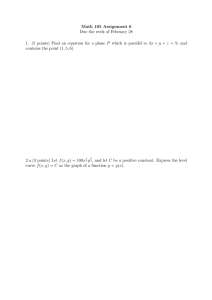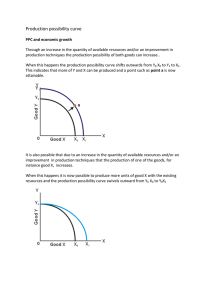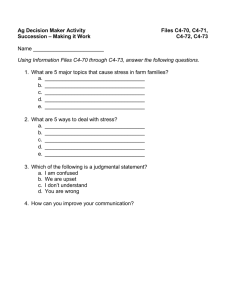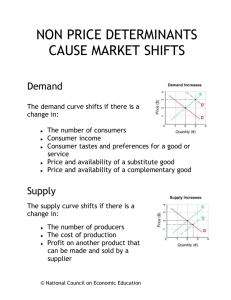Ag Decision Maker Activity File C5-204 Demand
advertisement
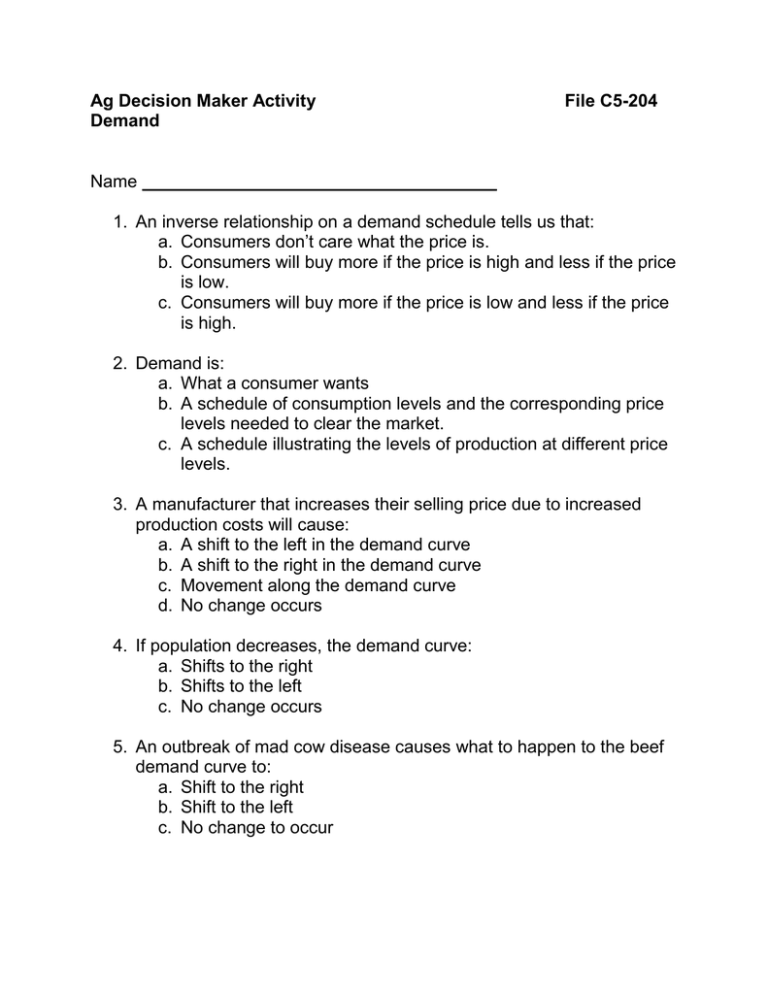
Ag Decision Maker Activity Demand File C5-204 Name 1. An inverse relationship on a demand schedule tells us that: a. Consumers don’t care what the price is. b. Consumers will buy more if the price is high and less if the price is low. c. Consumers will buy more if the price is low and less if the price is high. 2. Demand is: a. What a consumer wants b. A schedule of consumption levels and the corresponding price levels needed to clear the market. c. A schedule illustrating the levels of production at different price levels. 3. A manufacturer that increases their selling price due to increased production costs will cause: a. A shift to the left in the demand curve b. A shift to the right in the demand curve c. Movement along the demand curve d. No change occurs 4. If population decreases, the demand curve: a. Shifts to the right b. Shifts to the left c. No change occurs 5. An outbreak of mad cow disease causes what to happen to the beef demand curve to: a. Shift to the right b. Shift to the left c. No change to occur Ag Decision Maker Activity Continued… Demand File C5-204 6. Because wealth is rising in India, the demand curve for automobiles in India will: a. Shift to the right b. Shift to the left c. No change to occur 7. A farmer is asked to increase the amount of corn he plants because the ethanol plant is experiencing increases in demand for ethanol. This is an example of: a. Primary Demand b. Derived Demand c. Supply 8. Effective demand is where consumers: a. Have the will and the means to purchase the product b. Have the will but not the means to purchase the product c. Have neither the will nor the means to purchase the product. . . . and justice for all The U.S. Department of Agriculture (USDA) prohibits discrimination in all its programs and activities on the basis of race, color, national origin, gender, religion, age, disability, political beliefs, sexual orientation, and marital or family status. (Not all prohibited bases apply to all programs.) Many materials can be made available in alternative formats for ADA clients. To file a complaint of discrimination, write USDA, Office of Civil Rights, Room 326-W, Whitten Building, 14th and Independence Avenue, SW, Washington, DC 20250-9410 or call 202-720-5964. Issued in furtherance of Cooperative Extension work, Acts of May 8 and June 30, 1914, in cooperation with the U.S. Department of Agriculture. Cathann A. Kress, director, Cooperative Extension Service, Iowa State University of Science and Technology, Ames, Iowa.
